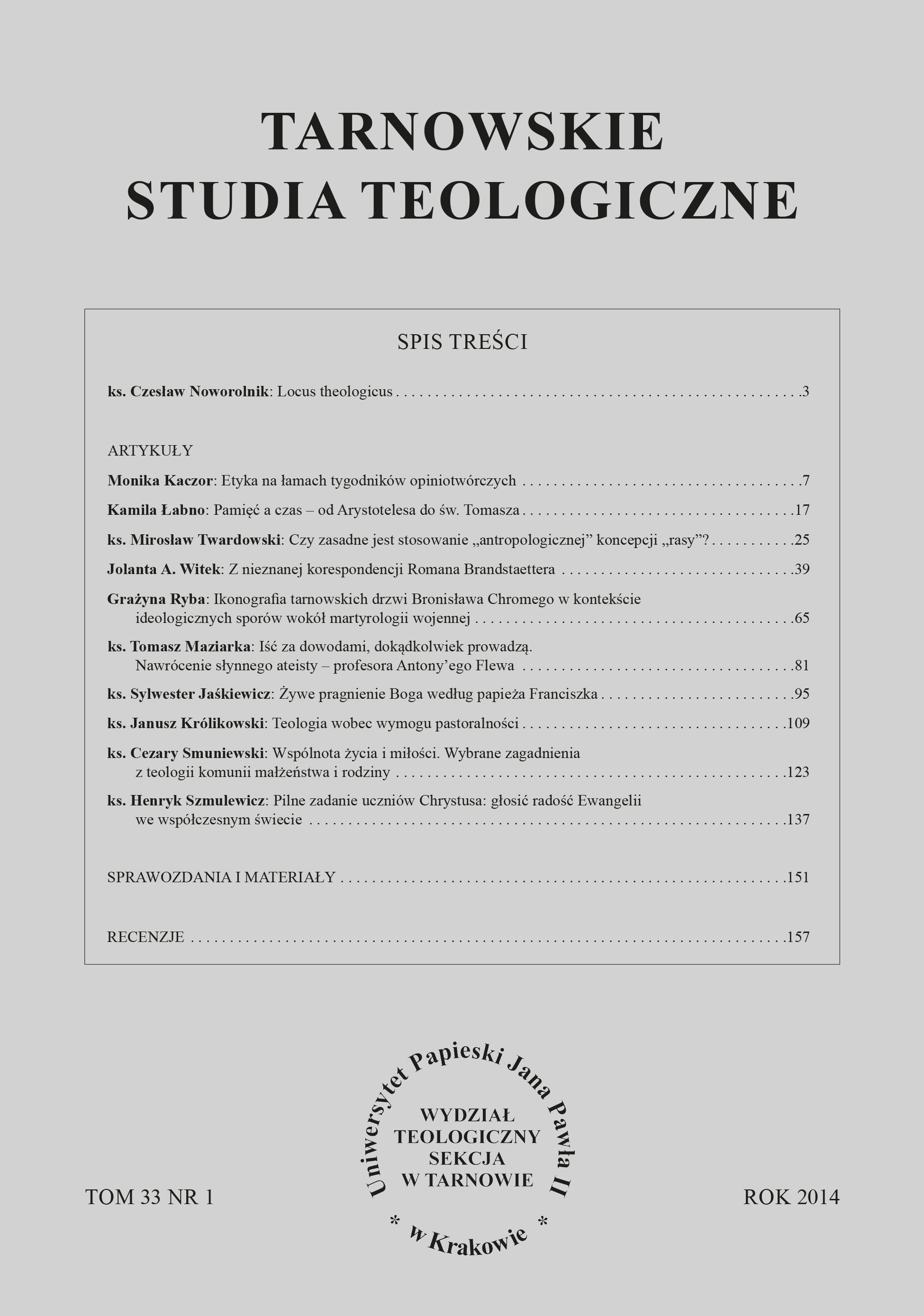Theology faced with demand of pastoral care
DOI:
https://doi.org/10.15633/tst.717Keywords:
theology, pastoral care, nature, method, spiritualityAbstract
Many postulates are put against the contemporary theology. The most important among them are learning of a high level and pastoral care. On the one hand, there is postulated that theology must be careful, systematic and organized in terms of scientific knowledge. It comes in this case to a clear determination of its nature and methods that constitute every field of research as a science, and then to a consequent sticking to the chosen methods. A supplementary postulate concerns such a scientific doing theology, which allows to specify its position compared to other sciences. On the other hand, a postulate is formulated that theology is supposed to have higher level of pastoral care. It is a postulate that appears almost commonly in circles associated with the formation of priests. This is understandable, since theological studies have to prepare for the pastoral care service. The circles of secular theology students speak rather about the “practicality” of theology, although it is in fact the same. The postulates mentioned above are discussed in this article on the basis of reflection on the subject of theology, its nature and method, also on some theological lecture contents and on the spiritual quality of this lecture. There is paid particular attention to possibilities of pastoral theology, but formulated under explicit scientific criterion.
References
Biffi I., Fede, intelletto e prassi, Milano 2014.
Blanco A., Cirillo A., Cultura e teologia, Milano 2001.
Cottier G., Les chemins de la raison. Questions d’épistémologie théogique et philosophie, Saint-Maur 1997.
Dulles A., El oficio de la teología. Del sobolo al sistema, Barcelona 2003.
Królikowski J., Integralność i integracja teologii. Wyzwania stojące przed teologami na początku nowego wieku, „Tarnowskie Studia Teologiczne” 23 (2004) s. 251-266.
Królikowski J., Studium teologii i apostolat w świetle doświadczenia duchowego i teologii św. Tomasza z Akwinu, „Tarnowskie Studia Teologiczne” 31 (2012), zeszyt okolicznościowy, s. 91-114.
Downloads
Published
Issue
Section
License
Authors who publish with this journal agree to the following terms:
- Authors retain the copyright and full publishing rights without restrictions, and grant the journal right of first publication with the work simultaneously licensed under a Creative Commons Attribution 4.0 International License that allows others to share the work with an acknowledgement of the work's authorship and initial publication in this journal.
- Authors are able to enter into separate, additional contractual arrangements for the non-exclusive distribution of the journal's published version of the work (e.g., post it to an institutional repository or publish it in a book), with an acknowledgement of its initial publication in this journal.
- Authors are permitted and encouraged to post their work online (e.g., in institutional repositories or on their website) prior to and during the submission process, as it can lead to productive exchanges, as well as earlier and greater citation of published work (See The Effect of Open Access).

